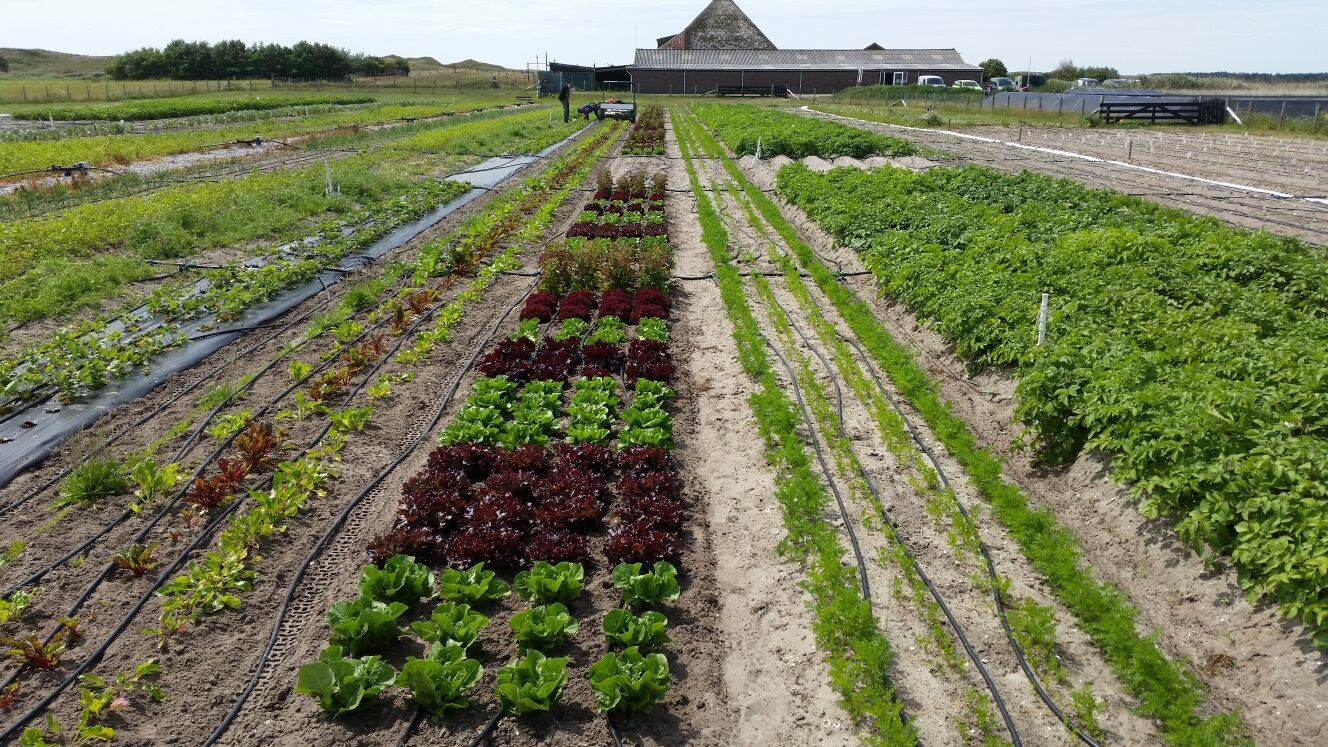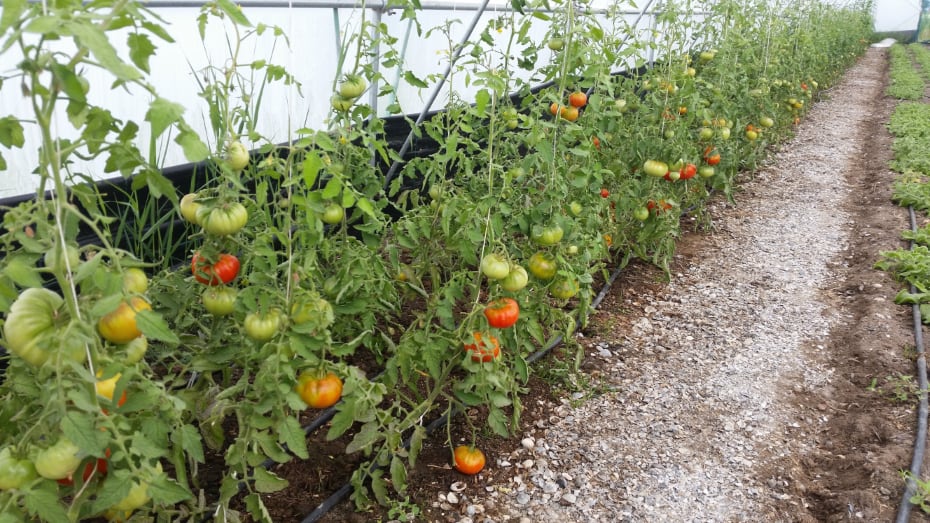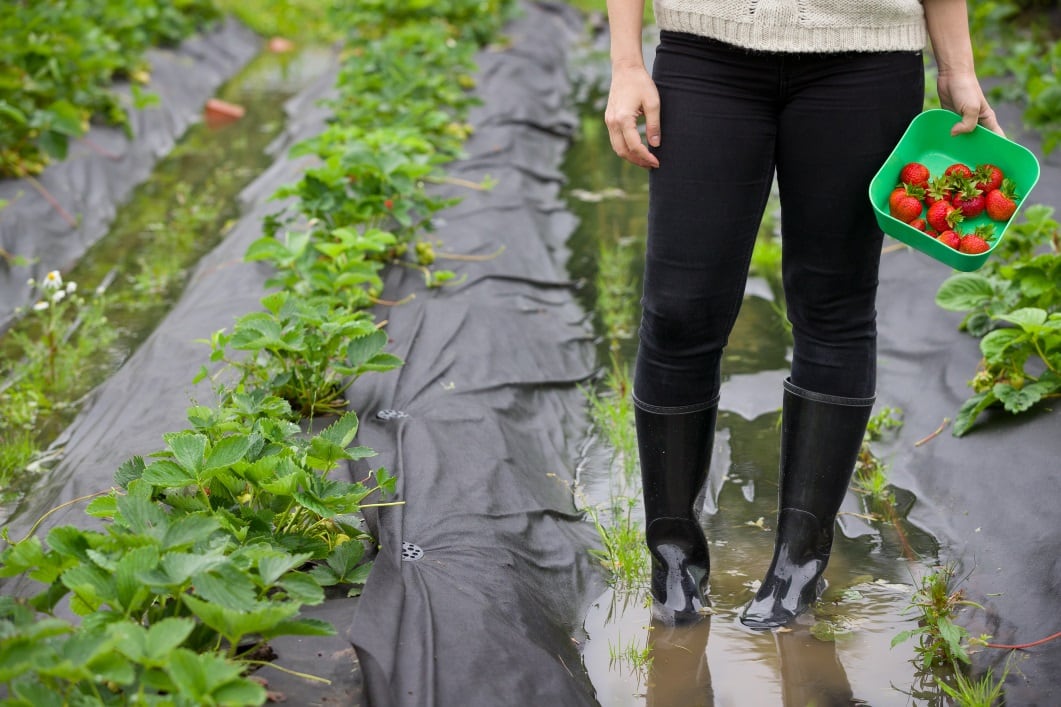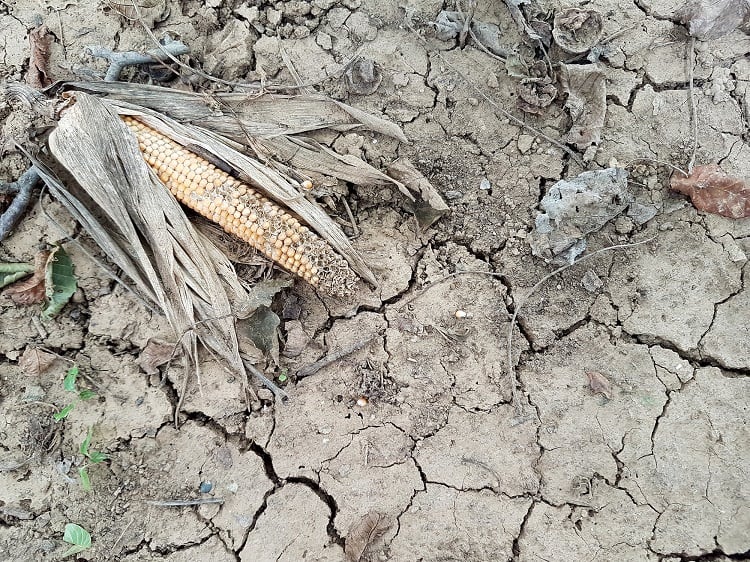Farming on saline soils is associated with a drop in yield and crop failure. However, according to a group of experts working on the EU-funded SalFar project, the potential of growing food in saline soils is ‘vast’ and, so far, ‘underrated’.
SalFar is part of the EU’s North Sea Region development programme, which aims to support economic development in the seven countries that make up the region.
Project manager Angelica Kaus explained that rising sea levels are a growing concern for coastal communities in the North Sea Region, which includes Norway, Sweden, Denmark, The Netherlands, Germany, Belgium and the United Kingdom.
“Climate change is a global challenge that will have a major impact on the North Sea Region, affecting agriculture in coastal areas in various ways. The SalFar project focuses on the degradation of farmland due to salinization,” Kaus told FoodNavigator.
Kaus said SalFar's aims include:
- Based on the collection and analysis of data from all partner regions we want to generate a clear picture on salinization in the North Sea region and and how it will affect agriculture.
- Awareness raising and capacity building for farmers and food producers by workshops and the development of training modules for saline farming methods.
- Rethinking environmental and agricultural policies and water management in coastal areas
- Strengthening the rural coastal economy of the North Sea Region by creating new business strategies and opportunities for farmers, food producers and entrepreneurs.
Rising sea levels and food security
Higher sea levels are making agricultural soils in coastal areas saltier.
According to the National Oceanic and Atmospheric Administration, which uses satellites to monitor global sea levels, the past century has seen a rise in sea levels that has accelerated in recent decades. In 2017, global mean sea level was 3 inches above the 1993 average—the highest annual average in the satellite record (1993-present). It was the sixth consecutive year, and the 22nd out of the last 24 years in which global mean sea level increased relative to the previous year.
Kaus warned that this trend represents a threat to food production. “The main driver for increased salinization in the North Sea Region is the continuous rise in sea level. Sea level rise leads to increased seepage of seawater, a higher risk of flooding, pushes seawater further inland and in time will lead to ever increasing salinization of farmland in the North Sea Region as well as in other parts of the world. Without adequate countermeasures this will lead to loss of food production capability and severe damage to coastal economies.”
SalFar is working on how to protect the roots of crops and examining whether there are any crops that can resist or have a higher tolerance against saltwater. “Open air field labs have been set-up in the participating countries Denmark, Netherlands, Germany, Norway and the UK and research is done by a multidisciplinary group of scientists and practitioners: climate experts, farmers, microbiologists, soil experts, economists, policymakers etc. who share their knowledge on a broad scale to contribute to the mitigation of the effects of salinization.” Kaus revealed.

By uncovering the crops best suited to salty soil conditions, SalFar researchers believe that their insights will ultimately help feed the growing global population, which is expected to reach almost 10bn people by 2050. Forecasts from the World Economic Forum predict this demographic change will drive a 60% increase in demand for food from 2016 levels.
Around the world, there are millions of hectares of degraded soils which could potentially be used to grow salt-tolerant crops and thereby help ensure food security.
New business opportunities
SalFar is not only about exploiting degraded farmland for food production, it is also about creating new business opportunities for farmers, food producers and entrepreneurs by creating ‘new exciting products’.
Addressing the ‘taboo’ of salinity is crucial for the economic success of food producers in the North Sea Region, Kaus said. “Farmers would never admit that their land is affected by saltwater, it would decrease in value immediately. But with a threatening sea level rise, more and more farmland will be affected and new methods have to be found to still make use of it or re-use it. There is a huge economic benefit.”
There is also scope for innovation. Crops grown under saline conditions develop unique characteristics in taste and texture. This opens up the possibility to develop new unique and eco-innovative saline products. In fact, one of SalFar's objectives is to design a brand for saline products from the North Sea Region.
The project is already working across a ‘broad range’ of crops that are suitable for saline farming. “Some potato varieties grow very well on saline soil and taste delicious,” Kaus continued. Various cabbages, carrots, beetroot, a ’special variety’ of tomatoes and even strawberries are all performing well under saltier conditions, she added.

As well as leveraging the distinct taste profile of produce grown in saltier conditions, SalFar intends to look at whether these methods have any implications for their nutritional profile.
“The project will run until the end of 2021 and we will start looking for nutritional implications next year. We will develop a toolkit for quality measures including taste, texture, nutrition values, functionalities, market potential.
“Documentation of the unique qualities of saline food products is important for the development of new business strategies for farmers. We also have some collective marketing actions in mind, like for instance a common North Sea Brand for these unique products.”
SalFar has organised an international conference, Saline Futures Conference, to demonstrate and discuss the potential of farming on saline soils. It will take place from 10-13 September in Leeuwarden, the Netherlands. During the conference the first results from the SalFar field labs will also be presented where the salt-tolerance of crops has been tested.



